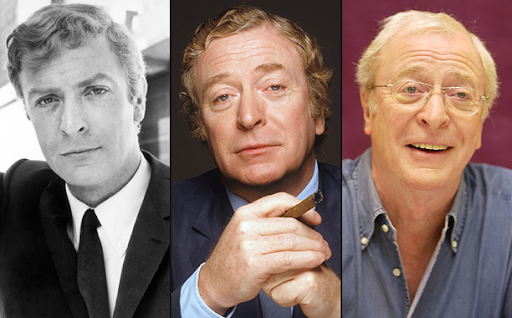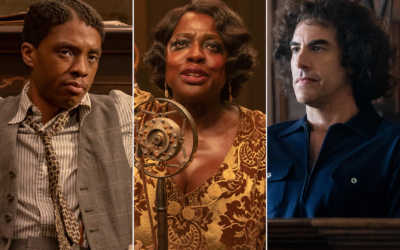Source: Entertainment Weekly
An actor’s retirement may not be nearly as tragic as their passing, but there is nonetheless something sad about hearing that a performer who spent several years of their lifetime bringing to life one iconic character after another has decided that their time on the screen has reached its end. Nowhere is this more apparent than in the recent announcement that Michael Caine, a British actor who has appeared in various films throughout his decades-long career, has chosen to end his career. Born Maurice Joseph Mickelwhite on March 14th, 1933, Caine first began acting in the early 1950s, developing his stardom in the 1960s and 1970s and going on to become one of the most recognizable British actors of the 20th century (and even part of the 21st). Having made it to the ripe age of ninety years old, one can’t be too surprised that Caine would aspire to spend whatever remains of his time without having to contend with the burden of employment, but one cannot help but feel melancholic about the fact that he will appear in no more films from this point on. With his final feature, the biographical drama “The Great Escaper”, recently debuting in theaters across the United Kingdom, Caine’s filmography has officially reached its ending, and in commemoration of his long and prosperous career, there seems to be no better time than now to look back on it and some of the most memorable works of cinema that Caine contributed his acting talents to.
“Zulu” (1964) – although Caine had been cast in a wide array of minor roles during the first few years of his acting career, it was this British epic war film that helped him truly break out in the industry and let the world know what he was capable of. Through his portrayal of Lieutenant Gonville Bromhead, a real-life officer who fought in the Anglo-Zulu War of 1879, Caine proved that he could successfully convey a convincing and properly developed character arc with the script and direction provided to him, effectively demonstrating how Bromhead went from an arrogant and inexperienced soldier to a man well aware of both the enemy army’s capabilities and the necessities of being a quality military leader. By following the example of Lieutenant John Chard (played by Stanley Baker), Bromhead eventually comes into his own, a development made believable through Caine’s impeccable performance.
“The Italian Job” (1969) – if “Zulu” demonstrated what Caine could achieve with a prominent supporting role, then this comedy caper was exactly what needed to show what he could achieve as the leading man. In portraying the Cockney criminal Charlie Croker, who aspires to steal a massive hoard of gold being transported through Italy following his release from prison, Caine appears to have little difficulty in adapting to the central spotlight, seamlessly immersing himself into the role of a thief eager to finish a heist first began by a recently deceased friend and fellow criminal. There’s quite a bit to enjoy in this quintessential British heist film, from Quincy Jones’ score to a climactic Mini-Cooper chase that ends with one of cinema’s most iconic cliffhangers, yet it’s Caine who holds the film together and provides it with a leading figure who’s more than able to commanding the attention of the viewer.
“Hannah and Her Sisters” (1986) – for his performance in this comedy-drama directed by Woody Allen, Caine was awarded one of the two Academy Awards he would receive throughout the duration of his career (the other being for his performance in 1999’s “The Cider House Rules”. Despite this accolade being given for Best Supporting Performance, there’s little about how Caine plays his character in this film that suggests it’s in any way inferior to a more noticeable leading role. Serving as the primary focus of one of three recurring storylines featured over the course of this complexly plotted narrative, Caine stands out above all others as Elliot, a man who has grown discontented with his marriage to Hannah (played by Mia Farrow) and develops an infatuation with her sister Lee (played by Barbara Hershey), leading to a stressful fallout that only further brings out the best of Caine’s thespian talents.
“The Muppet Christmas Carol” (1992) – an annual holiday favorite for many who grew up around the 1990s and afterwards, this cinematic adaptation of Charles Dicken’s iconic novella has gained an unexpected reputation as one of its more faithful retellings. This is especially surprising considering that the film is not only more comedic than most adaptations, but also has a cast consisting largely of frogs, bears, pigs, and other funny puppet characters. What keeps the film grounded in spite of these odd circumstances is Caine’s performance as Ebenezer Scrooge, one that he insisted on playing with utmost seriousness and sincerity even when it would’ve been much easier to give a more tongue-in-cheek performance. This approach could not be more perfect for the role of Scrooge, at it helps embody the character’s transformation from a bitter miser to a more joyous altruist come across as all the more believable and endearing.
“Children of Men” (2006) – out of all the real-life individuals for Caine to base his portrayal of Jasper Palmer, a former political cartoonist who has more than his fair share of qualms with the totalitarian regime that has taken over the United Kingdom in this film’s version of the year 2027, John Lennon probably was not the first that would come to most people’s minds. As it turns out though, the inspiration is actually quite fitting for a character who, in spite of this Alfonso Cuaron-directed dystopian action thriller bearing a predominantly bleak and serious tone, allows Caine to flex some of his more comedically-oriented skills as a performer. In fact, this was allegedly the first role Caine played that would have him both fart and smoke cannabis; it’s not exactly the most serious role Caine has ever taken on, but it’s also one that has its more dramatic aspects as well, providing the actor with a role far more nuanced than one might anticipate from his appearance.




